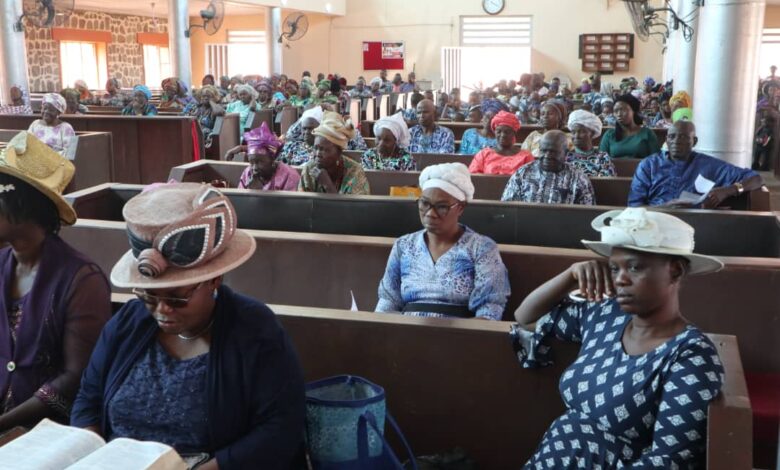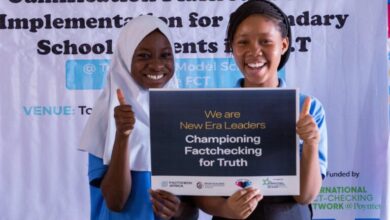
By Oluwaseye Ogunsanya
In a continued and proactive effort to combat the misinformation among marginalized groups, especially in rural communities, FactCheckAfrica in collaboration with the Foundation for Excellent Living and Development (FELAD) recently held a series of community sensitization workshops across several locations in Ekiti State.
These workshops, supported by the International Fact-Checking Network (IFCN), aim to educate diverse community members, including church congregants and artisan leaders, about the dangers of misinformation and the critical importance of fact-checking.
The sessions took place in various venues, including the Araromi Baptist Church, Babamboni Anglican Church, and the Association of Private Sectors in Ilawe Ekiti. The events effectively reached a broad audience with a total of 408 participants, comprising 161 males and 247 females aged between 35 and 91.
Throughout the events, the participants engaged in discussions designed to raise awareness about the implications of misinformation. Similarly, they were introduced to fundamental concepts surrounding misinformation and disinformation.
The facilitator, Olajumoke Omisore noted that the elderly participants, in particular, were eager to learn about fact-checking and the consequences of misinformation. According to her, the necessity of fact-checking information before sharing it is important, particularly in today’s digital age where false news can spread rapidly through social media and other channels. She also provided practical tools and techniques for verifying information, notably highlighting FactCheckAfrica’s AI fact-checking tool, MyAiFactChecker.
“This resource serves as a reliable means for individuals to confirm the authenticity of news and information they encounter.” She said.
The workshops strengthened high levels of participant engagement, with many attendees actively contributing to discussions and raising pertinent questions. Some of their inquiries revolved around the legal implications of sharing fake news and the potential for government intervention against misinformation. They also expressed a keen interest in understanding how misinformation impacts their communities, especially the elderly, who are often more vulnerable to deceptive information.
Interestingly, their feedback was overwhelmingly positive with many attendees acknowledging the significance of the sensitization. As a matter of commitment to continue the fight for a misinformation-free society and becoming agents of change within their respective communities, leaders from various community groups pledged to disseminate the knowledge gained during the sessions. Notably, the President of the Association of Private Sectors in Ilawe pledged to share the information with his members.
Conclusively, the sensitization workshops championed by FactCheckAfrica represent an all-important step toward empowering grassroots communities in Nigeria to address the challenges posed by misinformation. By equipping participants with knowledge and practical tools, these workshops not only address immediate concerns but also contribute to building a more informed, resilient society.




